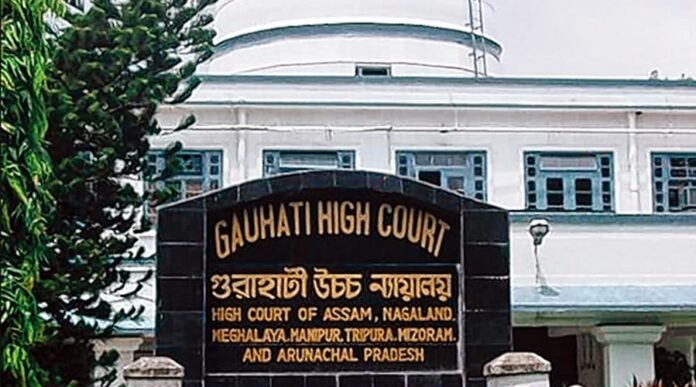#Regional News: Guwahati, Assam, June 26, 2023 The Gauhati High Court, which has been operational since 1951, currently stands as a symbol of legal tradition and history in the region. While the proposed shift may aim to streamline court operations, the Gauhati High Court Bar Association’s (GHCBA) protest underscores the significant reservations held by legal professionals regarding the potential repercussions of such a move.
The Gauhati High Court Bar Association (GHCBA) has written to the President of India, the Chief Justice of India, the Union Law Minister, and the Assam Chief Minister opposing the proposed shift of the High Court and the city’s sessions court to a ‘’judicial city’ in the North Guwahati Rangmahal area, which lacks the necessary infrastructure. They also raise doubts regarding the construction company entrusted with building the new bridge, citing previous incidents where a bridge under the company’s supervision collapsed. The association questions the haste and unilateral decision-making process employed, expressing apprehension about the impact on the independence and autonomy of the judiciary.
The Gauhati High Court Bar Association (GHCBA) has decided to hold a protest on June 27 against the state government’s decision to shift the High Court.
Senior Advocate Mrinal Kumar Choudhury, the President of the Gauhati High Court Bar Association (GHCBA), stated that the association’s decision to stage the sit-in demonstration, which is scheduled to take place from 11:00 a.m. to 1:00 p.m. The primary objective of the protest is to express opposition to the proposed shifting of the High Court and the formation of a high-level committee to facilitate this relocation.
Presently, the distance between the two sites is roughly 25 km, which is well over an hour’s commute taking into account the traffic conditions. However, a new bridge is being constructed, which is expected to reduce the travel time by half. Also, it will affect the effect the relocation may have on young and female lawyers, as well as litigants, who will face increased traffic, increased travel time, and potential inconvenience. The association emphasises that the move was not demanded by any bar associations and warns of potential delays and congestion that could hamper the justice delivery system.


